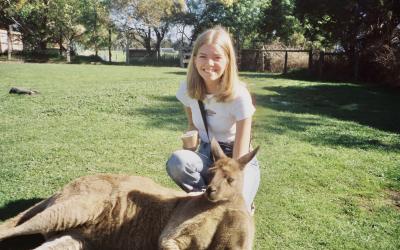In this exchange program, you will enroll directly in classes at La Trobe University, one of Australia’s leading teaching and research universities. Along with many traditional classes, La Trobe offers several unique areas of study, such as aboriginal studies, Hellenic studies, zoology, and cinema studies. Students can participate in a variety of extra-curricular activities including sports, exploring the outdoors, and theater. Comprised of a campus network in locations throughout Australia, students live and take most of their courses at the main Bundoora campus, which is located approximately 8 miles from downtown Melbourne and is easily accessible by public transportation. The program is open to UO undergraduate and graduate students from any discipline for a semester or full academic year of study. See a 360 degree virtual tour of the La Trobe campus.
Opportunities for field excursions make La Trobe a great choice for students interested in the biological sciences, archaeology, or Australian studies. Even non-biology majors can sometimes join in field trips designed to give students an up-close encounter with Australian wildlife. Australian Studies is an interdisciplinary program that offers students an understanding of Australia society and culture in a global context. Students looking to enhance their Study Abroad experience are encouraged to take the Australia Studies unit 'Discover Australia.' Other recommended fields of study at the Melbourne campus are: politics, international development, international economics, tourism, viticulture (science of wine production), history, legal studies, chemical sciences, computer science, business, education, media, and journalism.
La Trobe’s International Office offers support academic, financial, accommodation, cultural and personal issues. You can engage in community activities and volunteer work opportunities. The office is also available to help you in critical incidents, understanding university policies and procedures and accessing career services.
Melbourne is the capital city of Victoria and has been ranked as one of the world's most livable cities. It is referred to as Australia's "cultural capital" and is the birthplace of Australian impressionism, Australian football, and a number of Australian film and television industries. Federation Square is the cultural center, with a number of cafes, restaurants, and performances. It is also very convenient to travel around the city, with Melbourne having one of the largest operating tram networks in the world.


